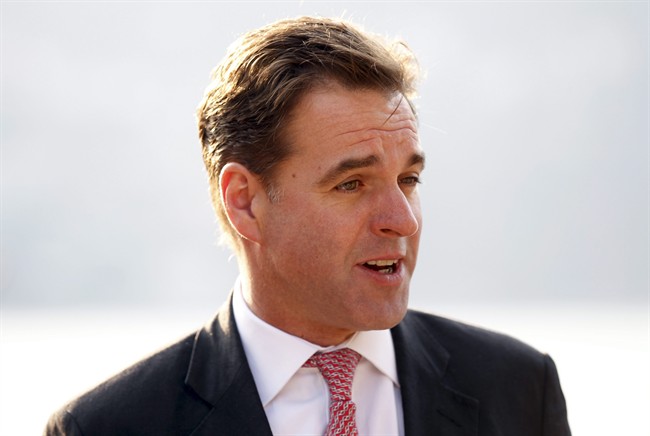The political interference behind Brexit and the election of U.S. President Donald Trump could “certainly” happen to Canadians, and the core problems behind the business model of social networks like Facebook are not getting fixed, according to a British historian.

In an interview with The West Block, British historian Niall Ferguson told Global’s Eric Sorensen the vast power of social networks has only been empowered by technology and that questions about how to address the threat networks like Facebook pose to the political processes of democracies do not have easy answers.
Ferguson, whose new book, The Square and the Tower, examines how hierarchies and networks shape the world, said the platforms have connected us more than ever before, but no longer seem to care about the responsibilities they have to use that power responsibly.
READ MORE: Facebook has lost $100B in value — and its money problems may just be beginning
“We were assured again and again, going back to the 1990’s, that everything would be awesome once we were all connected,” he said. “But somewhere along the line, Silicon Valley decided that in addition to making the world a better place, it would like to make itself a richer community.”
Facebook has lost more than $100 billion in value over the past several weeks following stunning revelations that the political consulting firm Cambridge Analytica harvested the profile information of 50 million Facebook users and reportedly used that to influence the outcomes of election campaigns, including the Brexit referendum in the United Kingdom and the 2016 American presidential election.

Get daily National news
The revelations prompted a global backlash and calls for users to delete their profiles or severely restrict what personal information they share on the platform.
WATCH BELOW: Facebook shares spiral after U.S. agency makes public its Cambridge Analytica investigation

Five days after the news broke almost two weeks ago, Facebook CEO Mark Zuckerberg finally issued an apology.
This week, he agreed to testify before Congress as regulators around the world launched investigations into whether his company had failed in its legal duties to protect the privacy of users, and several lawsuits were launched over the scandal.
Ferguson said the extent of power and influence the platform wields is like nothing else in history, but noted that public opinion has changed dramatically about the company.
“When you set out to make the world a better place, we love you,” he said. “When it turns out your primary motive is to sell advertising to the highest bidder and you accept rubles, I think we love you a lot less.”
With the countdown to the 2019 Canadian election ticking closer, the matter of what to do and how to regulate the giant takes on a new urgency.
READ MORE: 3 in 4 Canadians will use Facebook differently after data mining scandal: study
The groundswell of condemnation from the data harvesting scandal could push legislators to bring in tougher regulations, but will not fundamentally alter the business model of relying on advertising sales, Ferguson said.
However, it could be the push needed to crack down on penalties for such companies allowing their platforms to be used to feed disinformation to the public.
“Technologies companies like Google and now Facebook are not liable for the content that appears on their platforms, they’re not treated as media publishers,” he said. “I think that’s one of the things that could be looked at.”
Ultimately, the urgency of the problem is not going away – but the window of time for Canadian officials to act is narrowing, he warned.
“If this can happen to the United States or indeed to Britain because it was a part of the Brexit campaign, too, it can certainly happen to Canada.”
- Queen’s University students stranded in Doha after Iran attack shuts down airspace
- Attack on Iran triggers global flight disruptions, impacts Canadian travellers
- WWE Hall of Fame ring belonging to wrestling legend recovered after stolen
- Carney calls for protection of civilians as U.S., Israel strike Iran








Comments
Want to discuss? Please read our Commenting Policy first.